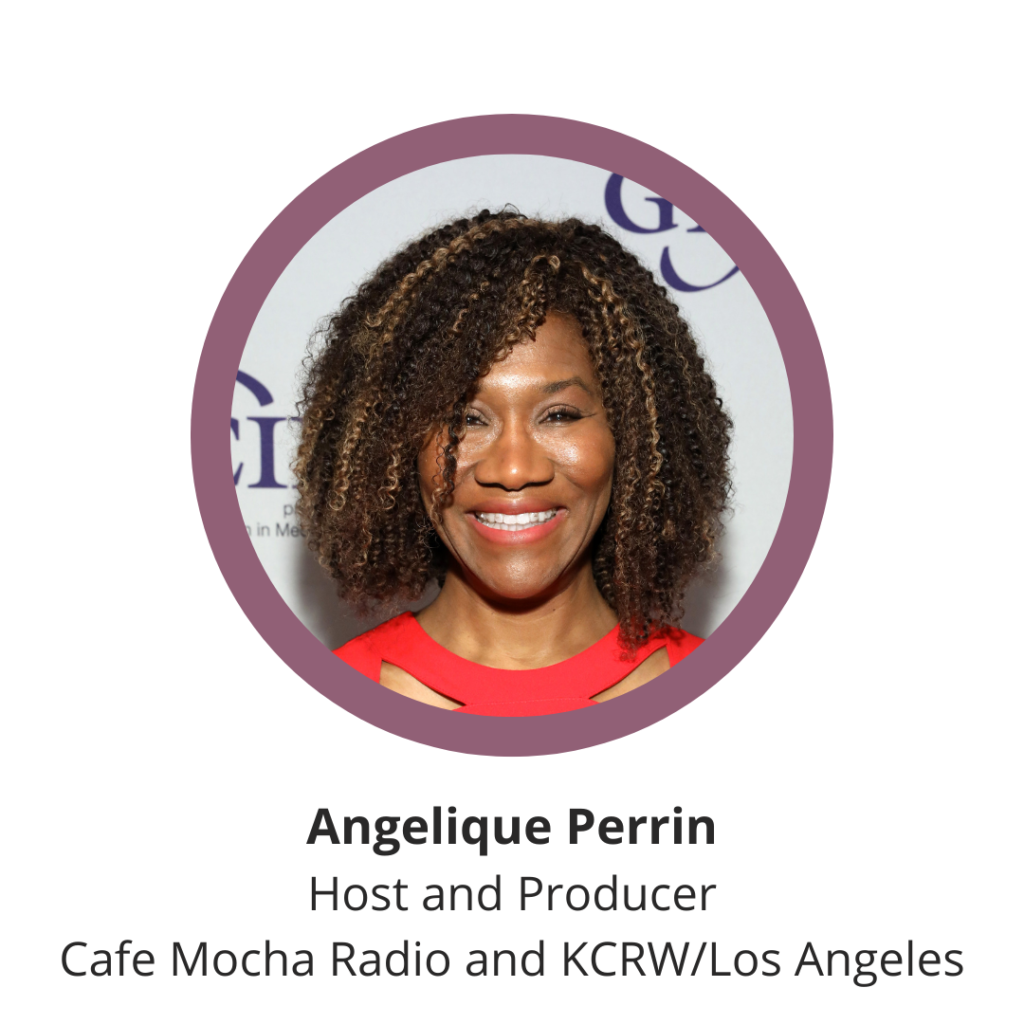
Why are organizations like the Alliance for Women in Media important today?
Between #MeToo, #TimesUp and the racial reckoning born out of the death of George Floyd, companies are in an interesting place. They must deal with how the workplace has (mis) treated many women and minority employees. They are in a position where many are actively and sometimes aggressively trying to recruit women and BIPOC. Organizations like AWM are where companies can find that talent. It’s also where we find each other for mentoring, camaraderie, or just whining by the virtual water cooler. And it’s also where we groom the future broadcasters. While attending the Gracies in New York, I met women from different markets, different stages of their careers, and different areas of broadcasting. It was refreshing and inspiring to connect and hear their stories. And to watch as we cheered each other on and encouraged one another.
What inspired you to join AWM?
Joining AWM was a natural fit for me personally and professionally. I co-host and produce a women’s empowerment show. I’m a big supporter of women pursuing their dreams and passions. I’m a natural mentor and teacher, especially to those pursuing careers in media and entertainment. When I started looking for a professional group whose vision aligned with mine, I didn’t have to go far. AWM is more than just the Gracies. They offer both local and national opportunities for women to learn, grow, connect and give back.
How did winning a Gracies as a graduate student help you with your professional career?
While at the University of Southern California, my professors suggested I submit an entry to the local press club awards. It was the first time I’d ever entered my work in a contest, and I won.
I returned to school as a mid-career professional, so I wasn’t new in the industry. I asked myself why I hadn’t entered any of my work before? I knew of the Gracies. There are lots of big names and talent who win. That year, I had a big interview with First Lady Michelle Obama for Café Mocha Radio, the syndicated show I produce/co-host. I decided to enter the interview and won. The next year we won again.
The superficial answer to this question is that I now get to call myself a multi-Gracie award winner. But the more important answer is that winning the Gracie forced me to acknowledge that I’m doing great work. I was always so busy turning out shows I never stopped to commend myself or even acknowledge the importance of the stories we tell on the show. I guess I’d never submitted anything because I didn’t think it rose to the level of a Gracie Award. So, winning and then winning two more times has taught me to value and respect my work more. It’s also inspired me to raise my bar even more. Not everything is going to be award worthy. But as I’m planning shows, booking guests, and developing topics, I’m doing so with excellence and service in mind.
Angelique’s Bio
I came into radio quite accidentally. A theater major, I was drafted into the profession after a morning radio dee jay heard me doing character voices and put me on the air as part of his morning crew. After decades producing and co-hosting drive-time shows in Charlotte, Detroit, and then LA, I dipped my toe into satellite radio. I became part of the team that launched Sirius Out Q, which pioneered Talk and Entertainment geared at LGBTQ audiences. Then came Café Mocha which brought topics and issues to progressive women of color when program directors felt there wasn’t a market for it. After getting my MA from USC and winning my first Gracie Award, I realized I needed a platform where I could tell more in-depth stories. So now I work in public radio. And yes, I’m still doing characters. Catch me in the new HBO Max cartoon Jellystone!. If you prefer the classics, I play Jedi Master Adi Gallia in Star Wars: The Clone Wars.
Knowledge Areas
Radio, Content Creation, Audio Production, On-Air Talent, Podcast Development


